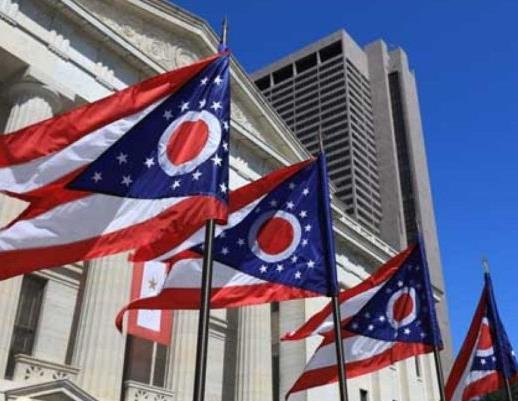Ohio is considering another major tax hike on sports betting, with Governor Mike DeWine proposing a jump from 20% to 40% on gross receipts. This move, part of his $218 billion budget plan for 2026 and 2027, follows a previous increase from 10% to 20% just last year. If approved, Ohio would join states with the highest tax rates in the country, raising concerns about the impact on the industry’s growth.
DeWine Targets Sportsbooks in Latest Tax Proposal
Governor DeWine hasn’t held back his frustration with sports betting companies. Speaking to the Ohio Capital Journal, he criticized their aggressive advertising tactics and the financial losses they encourage among Ohioans.
“These sports gaming [groups] are extremely aggressive… they’re in your face all the time,” DeWine said. “They’re getting Ohioans to lose massive amounts of money every year, and it seems to me only just and fair that some of the stadiums be paid for by them or a portion of it.”
Revenue from the proposed tax increase would primarily go toward funding youth sports programs and helping finance a new stadium for the Cleveland Browns. The team’s current lease at Huntington Bank Field expires in 2028, and officials are eyeing a new facility by 2029.

Would Ohio’s Tax Rate Become One of the Nation’s Highest?
If DeWine’s proposal moves forward, Ohio would become one of the most expensive states for sportsbooks to operate. A recent U.S. Tax Foundation study highlighted the tax rates across the country:
- High-tax states: New York, New Hampshire, and Rhode Island currently top the list at 51%. Pennsylvania sits at 36%, while Vermont follows at 31.7%.
- Mid-range states: Ohio (20%) is in line with Arkansas and Massachusetts. Tennessee (19.7%), North Carolina (18%), and several others sit in the 15-20% range.
- Low-tax states: Nevada and Iowa have some of the lowest rates at 6.75%, with Michigan (8.4%) and Indiana (9.5%) also keeping taxes under 10%.
Raising Ohio’s rate to 40% would catapult it into the upper tier, potentially discouraging sportsbooks from investing as much in promotions and new business within the state.
Lawmakers Divided on the Proposed Tax Hike
The proposal is now in the hands of the Ohio House Finance Committee, and lawmakers are not in unanimous agreement. Senator Niraj Antani has introduced SB190, a bill aiming to roll back the tax rate to 10%. Supporters argue that the higher tax is stifling the industry’s potential and could lead to a decline in revenue if sportsbooks cut back their operations in response.
There’s precedent for this concern. In New York, where the tax rate sits at 51%, FanDuel has paid over $1 billion in taxes. However, sportsbooks have frequently lobbied for lower rates, warning that long-term sustainability could be an issue if taxes remain too high.
One major question remains—will Ohio’s sports betting market continue to thrive under higher taxes, or could it push business away to states with more favorable regulations?
Balancing Revenue and Industry Growth
The U.S. Tax Foundation report also cautioned against excessive taxation in sports betting, noting that if rates are too high, the black market could thrive as bettors seek alternatives. The report also pointed out that nationwide legalization could double the market size, emphasizing the importance of carefully designed tax policies.
A closer look at recent trends highlights the delicate balance states must maintain:
| State | Tax Rate (%) | Sports Betting Market Size (2023, $B) |
|---|---|---|
| New York | 51 | 17.6 |
| Pennsylvania | 36 | 7.5 |
| Ohio (current) | 20 | 4.5 |
| Nevada | 6.75 | 7.1 |
| Michigan | 8.4 | 3.9 |
Despite its lower tax rate, Nevada maintains a strong market presence due to its longstanding history with sports betting. Meanwhile, New York’s higher tax rate has generated significant revenue, but sportsbooks have warned of long-term sustainability challenges.
If Ohio raises its rate to 40%, it could find itself in a situation where sportsbooks reduce their promotional spending, leading to lower betting activity overall.
What Happens Next?
Ohio lawmakers will now debate whether to accept DeWine’s tax proposal, modify it, or reject it altogether. The decision could have major implications for both the sports betting industry and state finances. If the tax hike moves forward, sportsbooks may need to adjust their operations in Ohio, potentially passing costs onto bettors.
For now, all eyes are on the Ohio House Finance Committee as they deliberate the future of sports betting taxation in the Buckeye State.
Leave a Reply